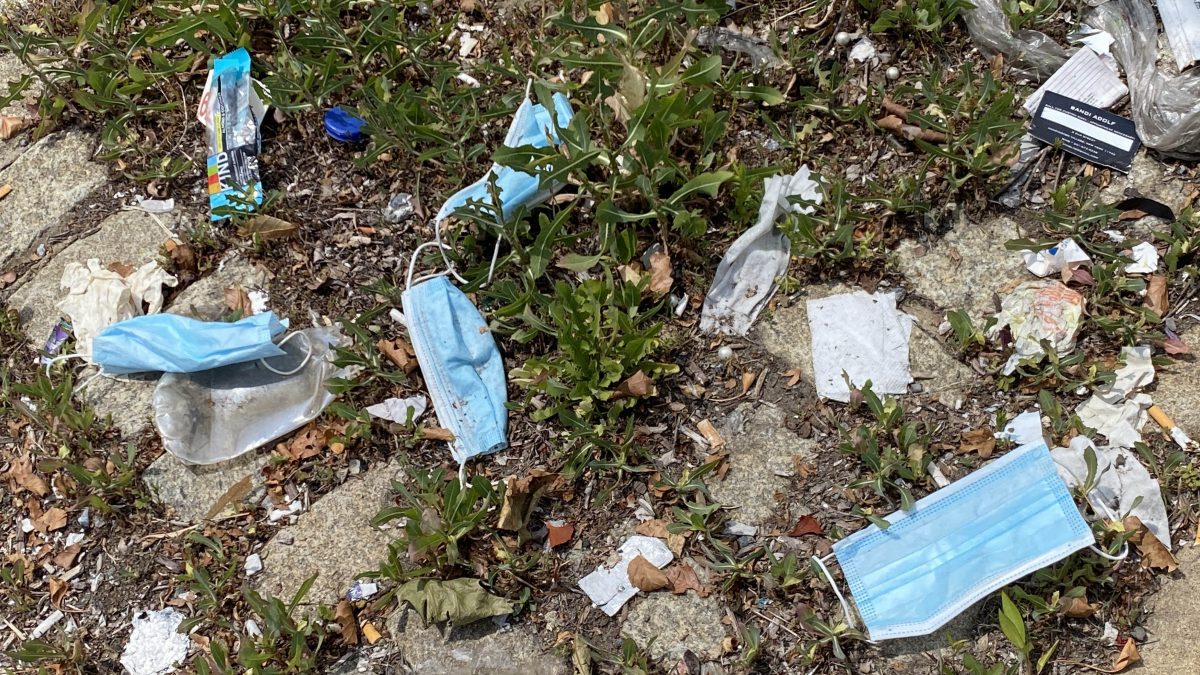As if the scourge of the COVID-19 pandemic is not in itself, already posing the most serious of human health challenges, the World Economic Forum (WEF) is saying that spinoffs from efforts to push back the virus are in themselves, creating other problems.
Informed environmental opinion would appear to be buttressing an article published by the WEF in June last year asserting that coronavirus waste has become “a new form of pollution as single-use personal protective equipment [PPE] floods our oceans.”
Asserting that the advent of the pandemic has brought with it “a number of unexpected impacts on the environment,” the WEF says that one of those has been “curtailing recycling and increasing the use of plastic around the world.” It calls on governments, currently preoccupied with their respective national vaccination campaigns, to “act now to ensure a green recovery that incentivizes sustainability.”
Over the period of just more than a year since the global response to the advent of COVID-19, billions of items of PPE have been deposited on trash heaps and in waterways across the world. Face masks and sanitiser receptacles are also disposed of in regular trash bins or sometimes on open streets.
Here in Guyana, a medical functionary who is part of the nursing care COVID-19 treatment regime told the Stabroek Business last week that “there is no evidence that managing the waste created by the response to the pandemic is a consideration in the minds of the authorities at this time.”
Not least amongst the potential health and environmental hazards is the thousands of disposable face masks which are, these days, cheap and readily available and which are frequently disposed of at various convenient places including at roadsides.
While conservationists around the world are reportedly sounding their voices over this likely pollution menace, there has been no Caribbean-wide alert over the problem, nor has there been any consequential region-wide initiative to rein in the practice. This despite the presence of both local and regional public health institutions across the Caribbean.
Globally, the WEF says, the COVID-19-related pollution problem may be growing worse. It reports that “waterlogged masks, gloves, hand sanitizer bottles, and other coronavirus waste are already being found on our sea beds and washed up on our beaches, joining the day-to-day detritus in our ocean ecosystems.”
The problem, it appears, has now become sufficiently serious for deep sea divers to flag what they say is the alarming volume of masks and other COVID-19-related waste deposited on sea beds. Away from the Caribbean, divers in Asia have reported masses of masks found off the coast of Hong Kong.
Even prior to the advent of the waste generated by face masks and plastic sanitiser containers, more than 8 million tonnes of plastics were already being deposited in oceans annually, adding to the already estimated 150 million tonnes already circulating in maritime environments.
For poor countries in Africa, Asia, Latin America, and the Caribbean, the substantive preoccupation with staving off the worse effects of the pandemic often appears to leave little room for any greater effort to push back the environmental burden occasioned by the potentially harmful waste left behind by used masks and the large volumes of plastic bottles that are indiscriminately dumped once the sanitiser that they originally contained is exhausted.
The figures for some developed countries are even more alarming. One study estimates that in the UK alone, if every person used a single-use face mask a day for a year, it would create an additional 66,000 tonnes of contaminated waste and 57,000 tonnes of plastic packaging.
While maritime nations have been the most affected by this new environmental scourge, deposits of COVID-19-related waste are likely to persist in other countries where governments have been slow in responding to this most recent threat to the environment.
The local nursing care official with whom the Stabroek Business spoke, said that from around March last year when the earliest signs of COVID-19 first manifested themselves here, it appears that the authorities “failed to take into account the importance of the likely knock-on effects of the indiscriminate dumping of the related waste. It is not, however, too late to do something,” the source added.
Globally, there is also concern over the greenhouse gas effects arising out of the consequence of import and export restrictions and the decline in the availability of shipping transportation that would have resulted from the huge amounts of food that have gone to waste.






